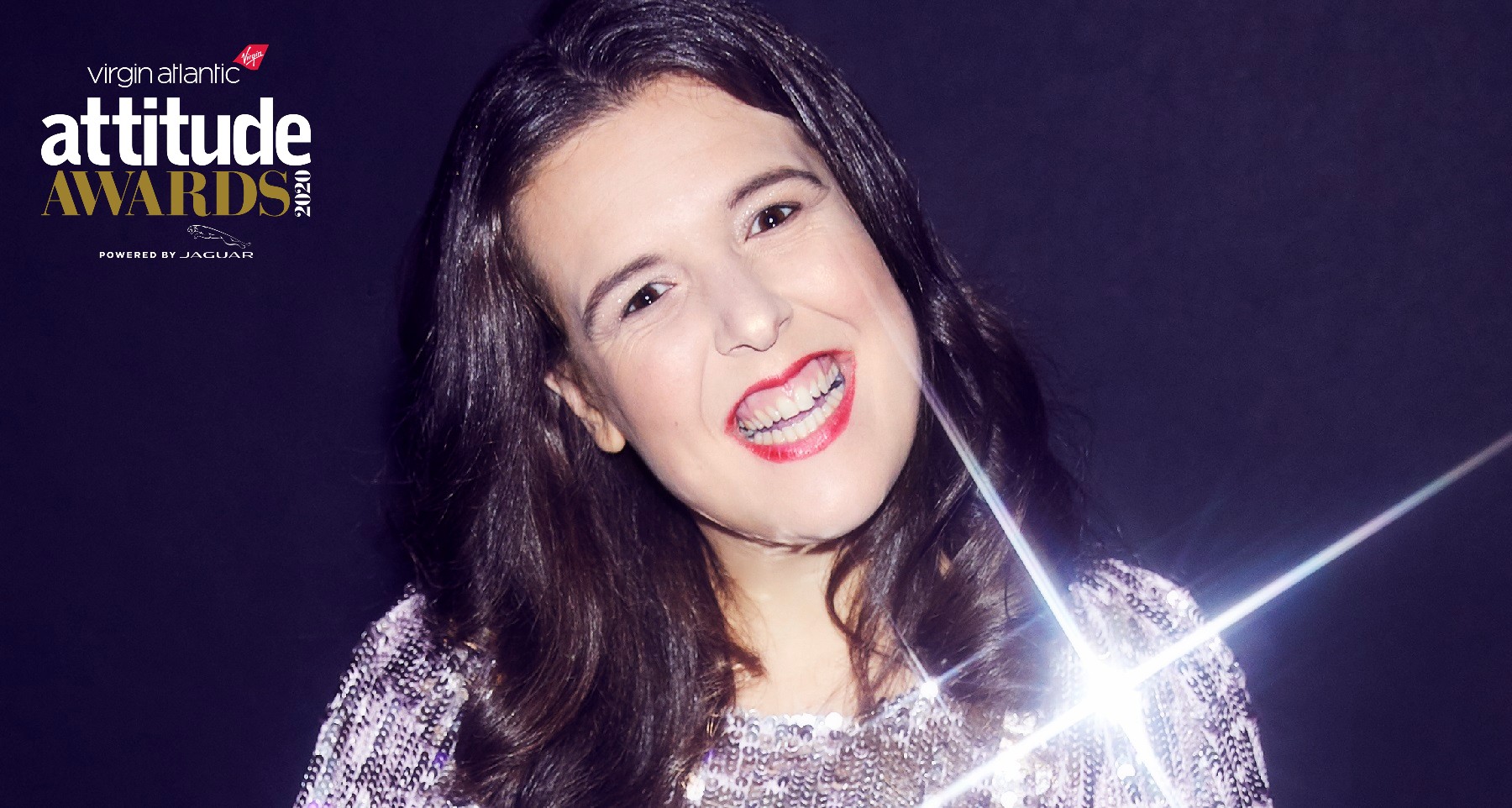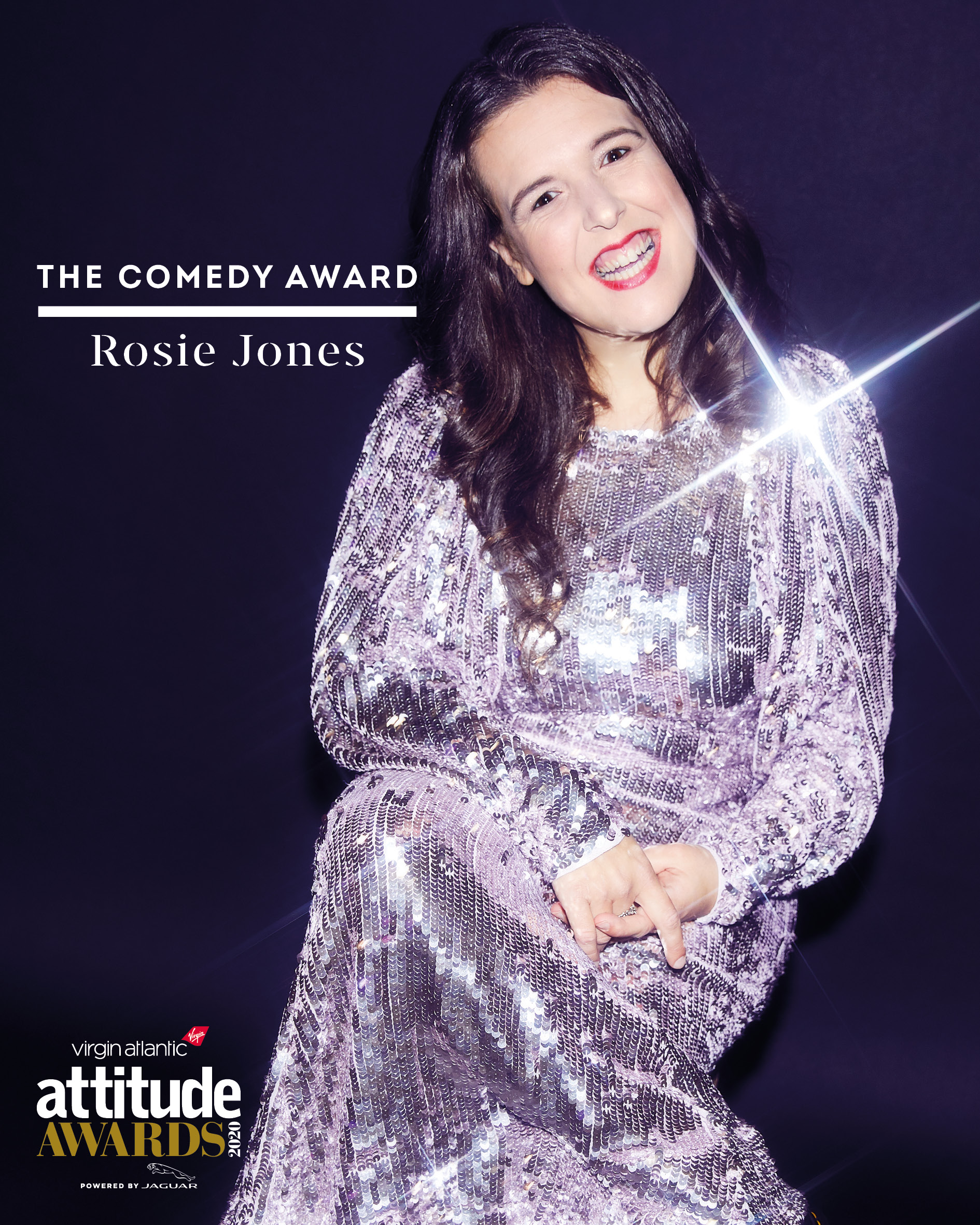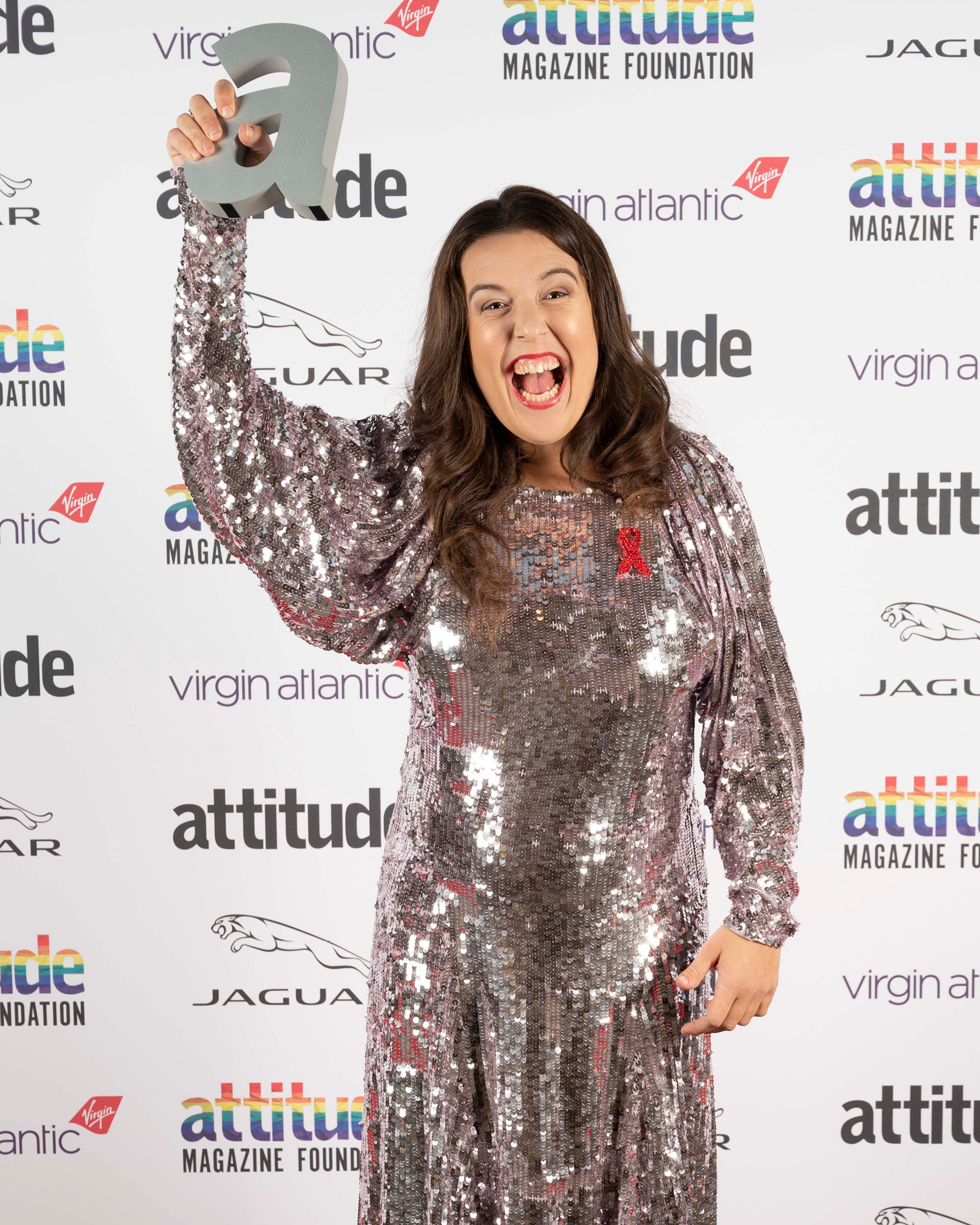Rosie Jones: ‘My comedy shows what it’s like to be a disabled, gay woman – a lot of fun!”
The recipient of the Attitude Comedy Award explains why lack of representation is, well, no joke.

Rosie Jones hopes to provide the visibility that was so lacking for her as a disabled, gay child, as she takes home the Comedy Award at the 2020 Virgin Atlantic Attitude Awards, powered by Jaguar.
A familiar face on TV panel shows such as 8 Out of 10 Cats and The Last Leg, the stand-up star says the lack of representation in the media – of disabled performers and “all minorities” – is no laughing matter.
“Growing up, I never saw someone disabled on telly. Although I had a happy childhood, in terms of the media, I never felt valid. I wanted to change that. I wanted somebody to tell my story,” she explains. “As I got older, I thought, no one can tell my story apart from me.”

Attitude Comedy Award winner Rosie Jones talks the lighter sides of sexuality and disability in the Attitude Awards issue (Rosie wears dress by ASOS; photography by Zoe McConnell)
Having started out her career as a television researcher, 30-year-old Rosie – who also co-wrote an episode of Netflix’s Sex Education – is determined to flip the script, while never dropping her signature smile.
“I fight for all minorities, and I still think we’ve got a problem of intersectionality. I feel like I’m the only disabled, gay woman going, ‘Hello, we’re here,’” she adds.
“I want to be present and in the media, so that if a little disabled girl out there is going, ‘Why do I want to kiss girls?’ They can turn on the telly and go, ‘Oh, it’s OK.’”
Rosie – who has Ataxic cerebral palsy, which affects speech and mobility – grew up in Bridlington, in Yorkshire, and she reveals she super-charged her sense of humour “as a self-defence mechanism.”
“I’ve always needed my humour,” she maintains. “Having cerebral palsy means that some people are awkward around you, or don’t know how to speak to you, so from a young age I learnt that if I was able to make a person laugh, it would break down the barrier… it just makes my life as a disabled person so much easier.”
During her interview in the Attitude January issue, out now to download and to order globally, Rosie opens up her struggle to accept her sexuality – she thought it would make her too different, that “being disabled was enough.”
“People have accepted me as disabled, to add something else – it blew my mind, and I was the one who had the feelings,” she recalls.
Remembering “wanting to kiss a girl [when] I was four,” Rosie tried to bury her feelings and even had homophobic thoughts.

“For years, I thought, ‘I’m not gay. I don’t want to be a PE teacher. I have long hair, I wear dresses’,” she exclaims, with a shake of her head. “It was only moving to London and being able to go out… realising that I could be gay without changing my ideas or my job.”
“Turns out I can put my hockey stick in the bin, I don’t need it,” she quips.
Rosie’s parents were incredibly accepting, too – almost disappointingly so.
“I built it up in my head, you see such dramatic coming-out stories on TV, so I think I wanted a big reaction, and I was like, ‘Mum, Dad… I’m gay,’ and they were like, ‘Yep.’ Come on!” she laughs.
Loudly and proudly addressing her disability and sexuality in her comedy, Rosie notes that they won’t always be front and centre of her material – they are important parts of her, yes, but by no means the whole.
“I like to make people think above their own life and their own world, so a lot of my comedy is showing someone what it’s like being a disabled, gay woman – a lot of fun,” she reflects. “[But] I hope there’s a day when I can mention it on my terms.”
“My disability will always be a part of me and it’s something that I am in no way ashamed about – I love it.” she continues.
Watch the 2020 Virgin Atlantic Attitude Awards, powered by Jaguar on YouTube now.
The Attitude Awards issue featuring all 14 winners will be available from 1 December to download and to order globally.
Subscribe in print and get your first three issues for just £3, or digitally for just £1.54 per issue.
